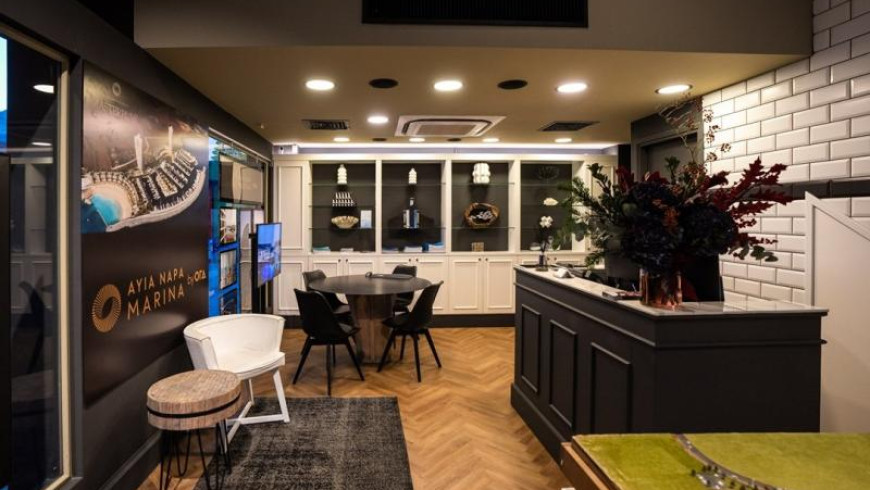
PwC highlights what can be done to help young women reach leadership positions
7/3/2013 17:36
2013 International Women’s Day
To mark International Women’s Day on Friday 8th March 2013, PwC has supported a book about developing talented junior women for future leadership roles. The findings will be discussed at events in Dublin, London and New York.
The book Rising Stars – Developing Millennial Women as Leaders looks at what organisations can do to create the right environment for millennial women to flourish in the workplace.
Written by Dr. Elisabeth Kelan, an Associate Professor in the Department of Management at King's College London, the book is unique in that it brings together gender, generation and leadership development to explore how these three areas work together – helping us to better understand how Millennial women can be developed into leaders of tomorrow.
This complements other research carried out by PwC on Millennials at work and diversity.
Dennis Nally, Chairman of PricewaterhouseCoopers International, says:
“Diversity is a key issue for us, which is why we were keen to support Dr. Kelan’s research. We recruit a rich diversity of talent every year from schools and universities, including some very talented junior women. We want to think about what experiences those women need to get now so that they’re primed for leadership down the road.”
Some highlights of the PwC-supported book ‘Rising Stars’, published by Palgrave Macmillan, include:
• Networks are very important for career progression – but the solution isn’t to create women’s networks. Networks should include both men and women so they can learn from one other
• Millennial women will on average have about five to nine different careers. It’s important for them to constantly adapt to the labour market and keep learning to update their skills
• Feedback is very important to achieve this goal. Particularly ‘feeding forward’, which is information on how they can become better in the future
• Organisations can do a great deal to change their culture to be more accommodating for Millennial women. Much relates to unconscious bias. Only by making stereotypes visible, can organisations overcome them
• Millennial women find it very important to have enough leisure time, yet in many organisations a long hours culture prevails
• Many organisations don’t use technology to its full potential. Millennial women don’t understand why they are required to be in the office from nine to five and technology might just provide the solution to that.
To mark International Women’s Day on Friday 8th March 2013, PwC has supported a book about developing talented junior women for future leadership roles. The findings will be discussed at events in Dublin, London and New York.
The book Rising Stars – Developing Millennial Women as Leaders looks at what organisations can do to create the right environment for millennial women to flourish in the workplace.
Written by Dr. Elisabeth Kelan, an Associate Professor in the Department of Management at King's College London, the book is unique in that it brings together gender, generation and leadership development to explore how these three areas work together – helping us to better understand how Millennial women can be developed into leaders of tomorrow.
This complements other research carried out by PwC on Millennials at work and diversity.
Dennis Nally, Chairman of PricewaterhouseCoopers International, says:
“Diversity is a key issue for us, which is why we were keen to support Dr. Kelan’s research. We recruit a rich diversity of talent every year from schools and universities, including some very talented junior women. We want to think about what experiences those women need to get now so that they’re primed for leadership down the road.”
Some highlights of the PwC-supported book ‘Rising Stars’, published by Palgrave Macmillan, include:
• Networks are very important for career progression – but the solution isn’t to create women’s networks. Networks should include both men and women so they can learn from one other
• Millennial women will on average have about five to nine different careers. It’s important for them to constantly adapt to the labour market and keep learning to update their skills
• Feedback is very important to achieve this goal. Particularly ‘feeding forward’, which is information on how they can become better in the future
• Organisations can do a great deal to change their culture to be more accommodating for Millennial women. Much relates to unconscious bias. Only by making stereotypes visible, can organisations overcome them
• Millennial women find it very important to have enough leisure time, yet in many organisations a long hours culture prevails
• Many organisations don’t use technology to its full potential. Millennial women don’t understand why they are required to be in the office from nine to five and technology might just provide the solution to that.














 3287.99
3287.99 1275.09
1275.09
